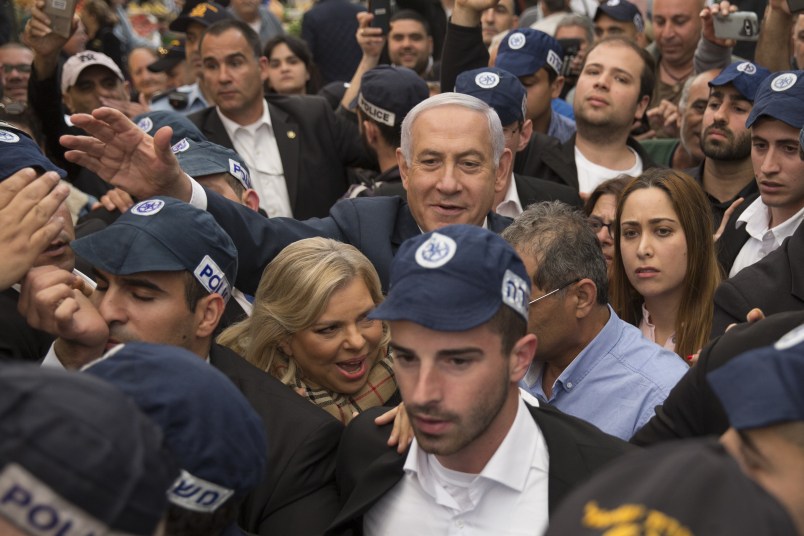Riad Malki told The Associated Press on the sidelines of the World Economic Forum in Jordan that Prime Minister Benjamin Netanyahu’s pledge was likely aimed at rallying his nationalist base in the final stretch of a tight race.
He added that Palestinians would “resist” such a policy if carried out.
“If Netanyahu wants to declare Israeli sovereignty over the West Bank, then you know he has to face a real problem, the presence of 4.5 million Palestinians, what to do with them,” Malki said, apparently referring to the combined Palestinian population of the occupied West Bank, east Jerusalem and the Gaza Strip.
He said Israel cannot expel the Palestinians. “We will stay there,” he said. “The international community has to deal with us.”
Malki accused the U.S. of encouraging Netanyahu by recognizing Jerusalem as Israel’s capital and, more recently, recognizing Israel’s 1981 annexation of the Golan Heights.
In a prime-time interview Saturday, Netanyahu was asked why he hadn’t annexed some of the larger Jewish settlements in the West Bank during his current term.
“The question you are asking is an interesting question, whether we will move to the next stage and the answer is yes,” he said. “We will move to the next stage, the imposing of Israeli sovereignty.”
Netanyahu has promoted Jewish settlement expansion in his four terms as prime minister, but until now refrained from presenting a detailed vision for the West Bank, viewed by Palestinians as the heartland of a future state.
It would mark a dramatic shift for Netanyahu, ahead of Tuesday’s balloting. Annexing settlements would all but end any chance of a two-state solution with the Palestinians and potentially push the sides toward a single, binational state.
Russian Foreign Minister Sergey Lavrov has also expressed concerns about America’s “illegitimate decisions” in the region. “We see the solution in dialogue between countries, because unilateral actions will never lead to anything good,” he said.
Turkish Foreign Minister Mevlut Cavusoglu slammed Netanyahu’s annexation pledge as an “irresponsible statement to seek votes.”
Cavusoglu said on Twitter that the West Bank is Palestinian territory, adding: “the Israeli general elections cannot and will not change this fact.”







I was impressed to see Benny Gantz dismiss Netanyahu’s pronouncement on annexing the West Bank as a gimmick and saying that Bibi had 12 years to do it and didn’t get anything done. I think Gantz may have effectively blunted a typical late game Bibi move.
I’m just surprised Mr. Tweet hasn’t jumped in with an announcement that the U.S. is in full support of the annexation…
The Israeli election is a little more than 24 hours away (Tuesday). I’ve been following the campaign. Here’s a summary of observations:
Right now, I’d say that If Blue/White wins the highest number of seats, it’s looking more likely that Gantz will get a shot to form a gov’t. The gap between Blue/White v. Likud is 3 seats per polls. It’s very tight, so we’ll have to just wait for the results and then see if Gantz or Bibi is in the better position to form a gov’t.
Thanks for that information.